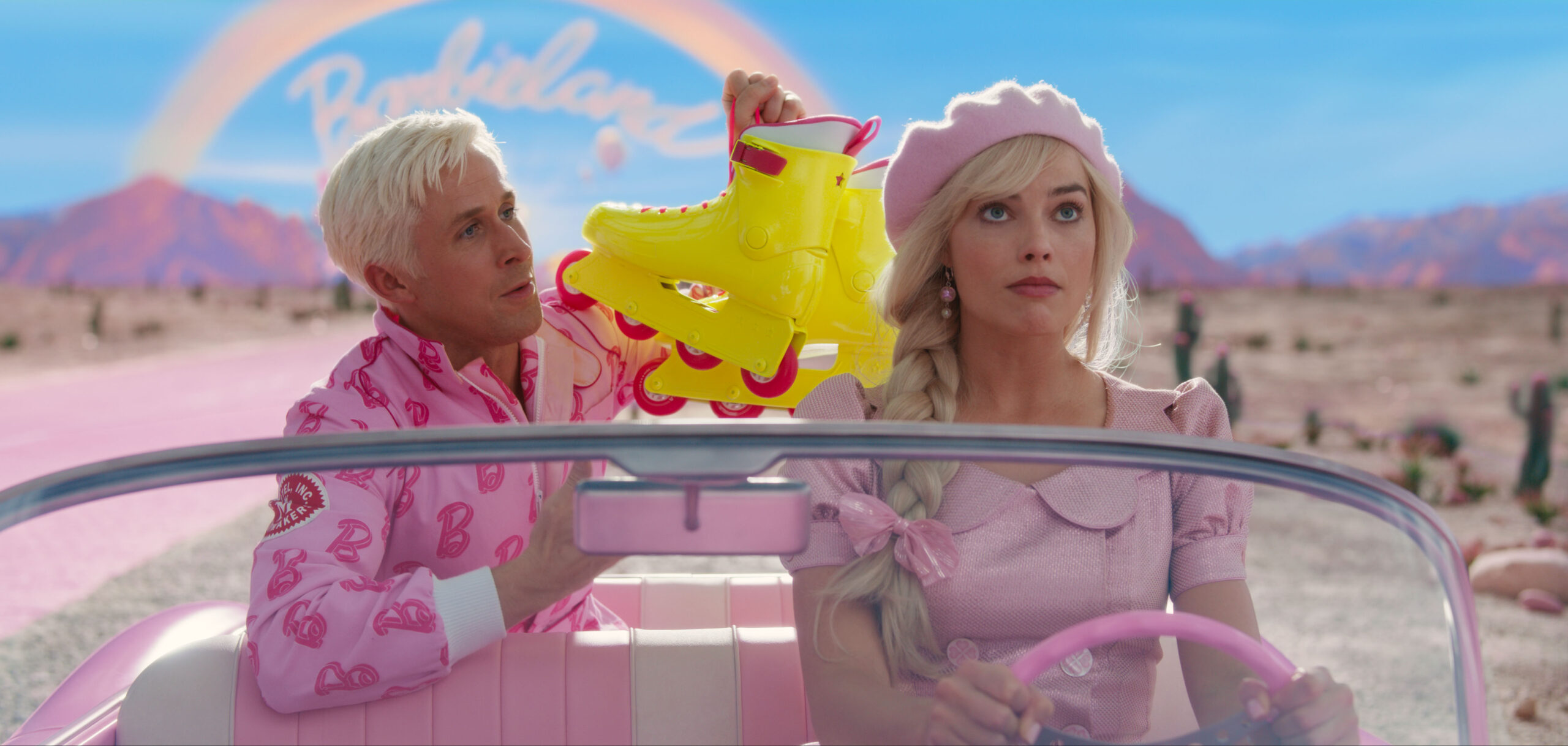In the ever-evolving world of play, one toy has held supreme since the 50’s – the Barbie doll. A symbol of beauty, success, and femininity, Barbie has shaped the worlds of little girls everywhere.
Growing up in the 90’s the variety of Barbie’s you could get your hands on was abundant and a sure fire way to secure yourself the popularity Barbie herself would be proud of. Malibu Barbie, Ballet Barbie, Stable Set Barbie complete with Nibbles the horse who soon befriended your My Little Ponies. But amongst the scattered floors and boxes was missing perhaps the most sought after Barbie of all – Greta’s Barbie.
The recent release of the live-action Barbie film, directed by feminist visionary Greta Gerwig, promises to redefine this enduring doll’s legacy. Known for her true to life inner workings of the female mind in her films Ladybird, Frances Ha and most notably her adaptation of Little Women. Greta’s thorough exploration of female desires, dreams and disarrays makes her more than qualified for the job of personifying the doll all little girls project their fantasies.
As we delve into the psychology behind Barbie’s influence and her evolving impact on young minds, we uncover a complex interaction between play, development, and societal norms.
Barbie Play
Play is a fundamental aspect of childhood, it serves as a cornerstone for growth and learning. Through various games and toys, children experiment, learn rules, and develop narratives about the world around them. With Barbie’s ubiquitous presence, she plays a pivotal role in this process.
When we look into the psychology of child development combined with the values embedded within popular toys we can see the profound impact they have on shaping children’s understanding of the world.
Dolls such as Barbie, become windows through which children explore social norms, values, and beliefs. We all know the ages of 3-7 are the ‘formative years’, as they lay the foundation for our cognitive development and shape personality traits.
The Doll that Touches Hearts and Minds
A study at Cardiff University’s Centre for Human Developmental Science tested the effect of doll play on children’s minds using neuroimaging technology. They uncovered that even solo doll play activated childrens’ centers for empathy and social processing, reinforcing the significance of dolls in fostering emotional intelligence.
Barbie’s impact extends beyond emotional development, influencing cognitive schemas and identity formation. Schemas, mental symbols that organize information, are shaped not only by personal experiences but also by cultural influences, like music, TV and in this case, toys.
With Barbie projected as the embodiment of female beauty and success, much debate has been sparked about idealized femininity. While Mattel sees her as empowering, critics argue her representation perpetuates unrealistic standards and traditional gender roles.
The Barbie Effect
The “Barbie Effect” has garnered attention for its profound consequences. Research indicates that exposure to Barbie idealism can influence body ideals, prejudice and career aspirations.
The unattainable beauty standards embodied by Barbie create an allure that fuels young girls’ desire for a body type linked to success and popularity but also one of very unhealthy standards when Barbie’s unattainable measurements, if translated to reality, would render her physically incapable of menstruating.
This influence has often resulted in a division between those who conform to her image and those who do not, potentially leading to feelings of exclusion and reduced self-esteem.
However, recent studies suggest that diversifying Barbie’s body types, such as introducing tall, curvy, and petite dolls and a variety of ethnicities can lead to more realistic self-perception and foster a sense of inclusivity.
Shaping Society's Beauty
Barbie can be seen much like the Kardashians, as modern influencers who wield substantial influence on macro societal standards of beauty, success and femininity as well as individual self-perception.
Her portrayal can drive followers to internalize her values and aesthetics, affecting their own preferences. The mass popularity of Barbie amplifies her impact, making her a powerful force in shaping generations’ identities.
New research has delved into the impact of the Barbie Effect on young girls’ perceptions of career attainment. An innovative study at Oregon University investigated the careers young girls believed they could pursue after interacting with different dolls – a traditional Barbie, a Doctor Barbie, or Mrs Potato Head (although the latter may not be the most 2023 alternative?!).
The findings yielded some unbelievably sad insights; showing girls who engaged with either the traditional Barbie or the Doctor Barbie expressed confidence in their ability to pursue only half the number of careers they perceived boys could, whereas those who interacted with Mrs Potato Head believed they could aspire to an equal number of professions as the boys in the study.
The Future of Barbie
Recognising the negative impact, Mattel, Barbie’s manufacturer, has taken steps to address concerns. Over the last 15 years, Barbie has evolved to include diverse body types, careers, and race representations. Recent research indicates that these changes positively impact self-esteem and inclusivity, allowing girls to identify with more realistic versions of the doll.
While much progress has been made in diversifying Barbie, the impact of these changes on young minds is still unfolding. Gen Alpha, growing up with these new dolls, might experience more positive schemas compared to their predecessors which will overall affect society’s perceptions of femininity.
The new live-action Barbie film by Greta Gerwig holds promise to redefine Barbie’s role in girls’ lives. With Gerwig’s feminist lens, the film might deconstruct preconceived notions and offer an ironic perspective on womanhood.
In many ways, Barbie’s journey mirrors our societal progression. From an emblem of unattainable ideals to an emblem of diversity and empowerment, Barbie’s transformation reflects our changing values and aspirations.
As we move forward, it is crucial to understand the psychological nuances at play and continue steering this iconic doll towards a future that inspires and empowers the generations to come.



